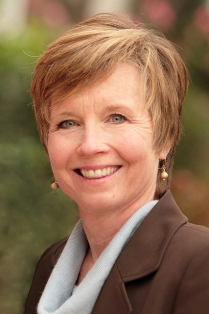Karen Clifton is the executive director of the Catholic Mobilizing Network, a Washington, DC, based Catholic group that seeks to apply the Catholic Church’s pro-life mission to the abolition of the death penalty in the US.
Michael O’Loughlin: Your group, Catholic Mobilizing Network, fights to end the use of the death penalty. How does this fit in to the Catholic Church’s very active pro-life movement?
Karen Clifton: The death penalty is a pro-life issue. By educating Catholics on the death penalty, we close the loopholes on all of the life issues. If we can come to believe that those who have done heinous crimes have the right to life and redemption, it is logical to believe the innocent have a right to life. Abolishing the death penalty is a means of changing the mindset of our culture from using violence to solve problems.
MO: Federal authorities may seek the death penalty against the alleged Boston marathon bomber, accused of killing 4, including a child, and injuring hundreds. Why should this person, and those who commit heinous crimes, be spared?
KC: Putting the Boston marathon bomber to death is not going to bring any of the four people who were sadly killed back to life. Two wrongs are not going to make a right, and using the death penalty just increase the violence. His death would just teach that killing justifies killing. Another way to think about it is, how does killing someone show that killing others is wrong? As a Catholic, I believe in redemption, which is all in God’s time.
MO: You’re from Texas, home of what the New York Times called America’s busiest death chamber. What was it like fighting the death penalty there?
KC: It feels like you are invisible. The executions were on the newspaper’s back page when I lived in Texas, and they were never discussed. It was as if they weren’t happening at all. The good works of many, including attorneys, students, and religious, are raising their voices to make the facts and moral issues known. Texas can always surprise you.
MO: Your group works with Sr. Helen Prejean, made famous for her anti-death penalty work in the movie ‘Dead Man Walking.’ What impact has she, and the film, had on America’s attitudes toward capital punishment?
KC: ‘Dead Man Walking’ was the perfect example of how film, theatrical performances and media can educate people about issues. Often, people don’t think about the death penalty unless it touches your family or someone you know. The book, which has many more facts, and the movie, which was beautifully written and acted, caught the nation’s attention. Other movies have done the same for mental illness, poverty, and racism, which are all issues that come to play in the death penalty. We need more movies that educate people about the realities that exist.
MO: In addition to fighting against capital punishment, you promote restorative justice. What’s the goal of restorative justice?
KC: Restorative Justice asks us to consider how we achieve justice and promote healing of the victim, the perpetrator, and the whole community. It’s not an easy out for the perpetrators; it’s actually more difficult. The offender has to recognize what they have done, own their actions, and then work to restore the harm they have caused. Through our retributive system of justice, all is focused on the offender. We need a system that gives the victim a voice, as well as the means to heal. The death penalty has proven not to be a source of healing, but a system that re-victimizes the victim’s family for many, many years.
MO: What’s more effective in converting people to your cause, moral arguments or economic ones?
KC: Depends on the audience. I would say initially, the economic arguments are more effective. People have usually not thought about the death penalty and often they don’t know the facts. If you give them the facts about cost, then they are often open to hearing the moral arguments as well. They often don’t know that execution can cost three times more than a life sentence in the highest level security prison, that poverty plays a major role in who gets the death penalty, as people with money do not sit on death row, that it’s racially biased, that one-third of all executions come from only 15 counties in the US, that there is a high probability of executing an innocent person. Once people hear this, they are open to hearing the moral arguments about a flawed system playing God, the lack of redemption, and the dignity of human life.
MO: A majority of Hispanics in the US supports the death penalty, despite the overrepresentation of Hispanics on death row compared to the population. Why?
KC: Hispanics tend to be culturally pro-life, but Spanish-speaking Catholics usually come from countries that do not have the death penalty. When they arrive in this country, usually in the South, they try to assimilate into American culture. They assume our values, which are predominately pro-death penalty. It is our job as Church to educate them that the death penalty is a pro-life issue and our laws are not always just.






